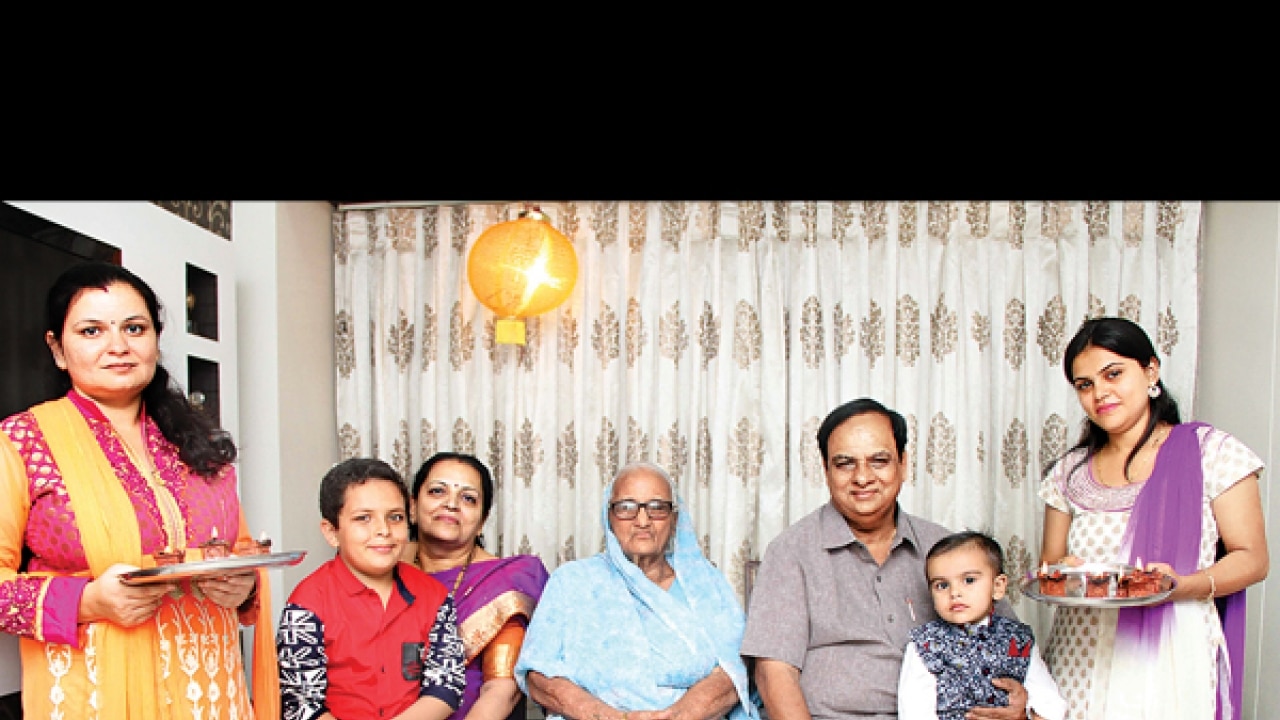The changing phases of Diwali
- Select a language for the TTS:
- UK English Female
- UK English Male
- US English Female
- US English Male
- Australian Female
- Australian Male
- Language selected: (auto detect) - EN

Play all audios:

Four generations of the Ravani family talk about how the ways of celebrating the festival has changed with time The Ravanis at their residence in Dombivali on Wednesday Festivity in India is
an eventful affair and for Diwali, preparations for the festival begin at least a week before. The festival of lights — which is the most important festival for the Hindus — marks the
beginning of a new year and is believed to be a celebration of victory of good over evil. Hence, it is considered an auspicious and joyous occasion. Diwali is being celebrated in India since
eons. However, with changing times, the ways of celebrations have changed as well. We spoke to the Ravanis — a family comprising members of four generations — to get their insight of the
multitude of differences between the celebrations, then and now. The eldest member of the Ravani family, Lalita Ravani, recalls her childhood days and the way Diwali was celebrated back
then. The 85-year-old great-grandmother said: "We did not burst firecrackers as much as the kids do today. Come Diwali, and we had a lot of work to do. Being a girl, I had to help my
mother with cleaning the house, preparing sweets for the festival, and so on." While the kid in the house, 10-year-old Prashva Ravani, busy with his toy gun, expressed his excitement of
playing with crackers during Diwali. "I love bursting crackers. During Diwali vacation, we also build a small mud fort (killa) in the society compound. It is super fun," he said.
On being asked what does he like the most about the festival, he promptly answered: "Eating sweets and wearing new clothes." A lot has changed over the years in terms of traditions
and customs. However, the thrill and the exhilaration remains the same, said Prashva's mother Arpita Ravani. "We used to decorate our house, make rangolis, adorn the house with
lights and diyas. I loved visiting our relatives during Diwali and receiving gifts from the elders," she said. The 33-year-old also remembers how her mother used to carry out elaborate
pujas and rituals during the four-day festival. Similarly, Asha Ravani, a second generation member of the family, recalled: "We used to wake up early in the morning and light up the
house with diyas. Preparations for the festival used to begin way in advance. People would colour the walls of their homes every year for Diwali. Nowadays people don't have the time to
do anything." With the fast pace of life today, the traditional customs have faded. Everything now has been replaced by ready-made stuff. Earlier, women used to prepare delicacies at
home. Traditional sweets like laddoos have been replaced by chocolates and dry fruits. Moreover, there is change even in interactions between people, said the Ravanis. "In our times, we
used to visit our neighbours and relatives and distribute gifts. Now, Diwali greetings are just shared on whatsapp," said Asha. Everyone unanimously agrees that in the contemporary
age, though the culture remains the same, the values have evolved. Diwali is still celebrated with the same zeal and gusto, but it is not as fun as it was used to be, they concluded.